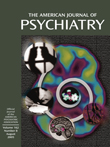The “Infallibility” of Psychopathology
To the Editor: The editorial by George S. Alexopoulos, M.D. (1), rightly pointed out the limitations of a strictly scientific approach to the understanding of mental illness. His reliance on the philosophy of science to illuminate the social context in which scientific theories of psychopathology rise and fall is admirable and, in its own restricted way, helpful. However, he failed to push his exploration as far as it can go.
As the editorial correctly asserted, Karl Popper’s view of science rigorously separates the experimental phase of the scientific process from social influences on theory formation. However, Dr. Alexopoulos did not mention the views of Willard V.O. Quine, Pierre Duhem, and Donald Davidson (2), who denied the adequacy of atomized scientific theorizing to deal with the question of empirical falsification. Quine, Duhem, and Davidson instead argued that theories of science exist not in isolation but, rather, are linked to each other through a web of belief. The rich connectivity of this web ensures that any new experimental result, which Popper might deem a refutation of one specific theory, can also be seen as explained by the same theory if some other theory within the overall web of scientific belief is commensurately adjusted. Context is crucial here, although the conventionalism of Quine, Duhem, and Davidson does not identify social elements as fundamental contextual factors (2).
In contrast, Martin Heidegger (3) viewed intersubjectively tacit assumptions embedding scientific theorizing as a key that can unlock the cognitive straightjacket of pure science. Heidegger placed these implicit cultural biases at the remote limits of science’s theoretical web, beyond its horizon of explicit cognizance under ordinary circumstances. However, recognition may erupt as a pragmatic necessity when sufficiently large breakdowns in the use of the web arise (3).
Popper would call such crises critical experimental falsifications. Quine, Duhem, and Davidson might term them massive empirical perturbations in the network. Heidegger framed them as golden opportunities to cast our gaze beyond theories as mere workaday tools. However, he also comprehended the price that such enhanced vistas exact.
In Heideggerian terms, violent assaults by the world of empirical practice on our culturally conditioned notions of abstract theorizing as a comfortable mode of human existence will decenter the scientific subject at his or her core. These jolts must generate ontic anxiety that cannot be anticipated in advance by the authoritative pronouncements of agenda-setting peer conferences or assuaged after the fact by the nostrum of consensual fiat.
Hence, one might justifiably ask, beyond mere science, can even meta-science, whose notion of progress is itself shot through with existential angst, contain the problem of anxiety?
1. Alexopoulos GS: On the “infallibility” of psychopathology and its implications for action (editorial). Am J Psychiatry 2004; 161:2151–2154Link, Google Scholar
2. Losee J: A Historical Introduction to the Philosophy of Science. Oxford, UK, Oxford University Press, 2001Google Scholar
3. Guignon C (ed): The Cambridge Companion to Heidegger. Cambridge, UK, Cambridge University Press, 1993Google Scholar



